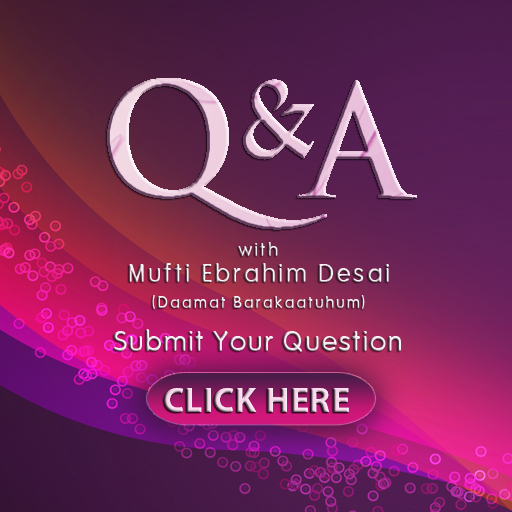
question:
1. When does discharge break wudhu? Is it correct that it only breaks wudhu when you see it on your underwear or when you feel it coming out?
2.1 How often is it necessary to check if you have discharged? Is it required to check before each salaah?
2.2 Is it required to check between the fardh and sunnats of salaah? And between the sunnats and nafl? (Even when nothing has been felt).
2.3 Is it required to check between different acts of ibaadat? Say for instance a woman reads salaah and wants to read Quraan straight after. She hasn’t felt anything but is it necessary for her to check before reading Quraan? And if she wants to read Quraan maybe an hour or 2 after reading salaah, is it necessary for her to check beforehand?
2.4 Is it required to check immediately after reading salaah, even though nothing has been felt?
2.5 If a woman sits between 2 salaahs is it required to check between the second salaah? For instance if she checks before Asr, makes a fresh wudhu and sits between Asr and Maghrib to make ibaadat, is it necessary in such a situation for her to get off her musalla and check again before the Maghrib salaah? (Again, in this hypothetical situation no discharge has been felt).
2.6 Similarly, if she wakes up for Tahajjud an hour before Fajr salaah sets in, makes a fresh wudhu, reads her Tahajjud etc, is it necessary for her to check again before reading her Fajr salaah?
3. What should a woman do if she is in a situation where she already has wudhu and the time of salaah has set in but she has no private place to check (for instance, when she is travelling).
4. Take the situation where a woman makes her wudhu then goes to read her salaah but in the first rakaat she feels she has discharged. So she breaks her salaah and makes wudhu again. But again in the first rakaat she feels she has discharged so she breaks her salaah and makes her wudhu again. What must she do if this keeps happening? And it is not a common occurrence for her but something that happens rarely, maybe once a month or once every few months.
4. What about in the situation when a woman feels she has discharged during salaah so she breaks her salaah but when she goes to check she sees nothing. And this happens a few times and each time there’s no discharge. What is the correct thing to do in this situation?
5. What about when a women definitely feels wetness but when she goes to check she sees nothing. Is she required to wipe to check in that situation? Or does it only break wudhu when you clearly see discharge on your underwear?
6. What if a woman has only found out recently that discharge breaks wudhu? She has already been baaligh for many years but absolutely did not know this before. Will her past ibadaat be accepted? Will she have to make qazas for her previous salaahs, even though there is no way of calculating how many salaahs she read with wudhu and how many without?
7. What should a woman do when she is required to keep her wudhu for an extended period of time but she is unsure she will make it without discharging and breaking her wudhu? (For instance, during taraweeh with jamaat or tawaaf)
Answer:
In the Name of Allah, the Most Gracious, the Most Merciful.
As-salāmu ‘alaykum wa-rahmatullāhi wa-barakātuh.
In principle, a discharge will nullify ones Whudu when one is sure that the discharge has occurred. This is either by one feeling that something has come out, or by one seeing the discharge. [i]
If one has not felt anything coming out, it is not necessary to continuously check for discharge. This will lead to one getting doubts and Wasaawis of Shaytaan. If one suffers from doubts regarding discharge from ones private parts, one should sprinkle water after Whudu on the crotch area. Thereafter, any feeling of wetness should be attributed to the water sprinkled. This is an efficient method for dispelling doubts regarding discharge.[ii]
Sister, you mention that you had checked for a discharge on numerous occasions and you had found that there was nothing. It is imperative that you do not give into doubt as this will only escalate and lead to you becoming trapped by the whispers of Shaytaan.
All your Salaah are valid and there is no need to repeat any of them. Convince your mind that there is no discharge unless you feel it coming out and you are one hundred percent sure. Besides this, there is no need to continuously check for a discharge.
And Allah Ta’ala Knows best
Checked and Approved by,
Mufti Ebrahim Desai.
[i] السعاية في كشف ما في شرح الوقاية (ص: 479)
قال وقالا مذ وجد سواء انتفخ أو تفسخ اولا وهو القياس لان اليقين لا يزول باشك والاصل اضافة الحادث إلى اقرب اوقاته لانا نتيقن بالطهارة فيما سبق ووقع الشك في النجاسة بعد ذلك
المبسوط للسرخسي (1/ 78)
لِأَنَّ كَوْنَهُ طَاهِرًا ثَابِتٌ بِيَقِينٍ، وَلَا يُزَالُ الْيَقِينُ إلَّا بِيَقِينٍ مِثْلِهِ،
الدرة المنيفة على مذهب الإمام أبي حنيفة (ص: 9)
ومن رأى بلالاً بعد الوضوء ولم يعلم هل هو بول او ماء ان كان اول ما عرض له اعاد الوضوء وان كان يريبه الشيطان كثيراً لايلتفت اليه وينبغي ان ينضح فرجه وسراويله بالماء قطعاً للوسوسة ذكره العلامة الحلبي
الدر المختار وحاشية ابن عابدين (رد المحتار) (1/ 220)
[فَرْعٌ] وَجَدَ فِي ثَوْبِهِ مَنِيًّا أَوْ بَوْلًا أَوْ دَمًا أَعَادَ مِنْ آخِرِ احْتِلَامٍ وَبَوْلٍ وَرُعَافٍ
النَّوْمَ سَبَبُهُ كَمَا نَقَلَهُ فِي الْبَحْرِ (قَوْلُهُ وَرُعَافٍ) هَذَا ظَاهِرٌ إذَا وَقَعَ لَهُ رُعَافٌ وَلَمْ يُبَيِّنُوا حُكْمَ مَا إذَا لَمْ يَقَعْ لَهُ وَلِأَجْلِ هَذَا – وَاَللَّهُ تَعَالَى أَعْلَمُ – رَوَى ابْنُ رُسْتُمَ أَنَّ الدَّمَ لَا يُعِيدُ فِيهِ؛ لِأَنَّ دَمَ غَيْرِهِ قَدْ يُصِيبُهُ فَالظَّاهِرُ أَنَّ الْإِصَابَةَ لَمْ تَتَقَدَّمْ زَمَانَ وُجُودِهِ، بِخِلَافِ الْمَنِيِّ؛ لِأَنَّ مَنِيَّ غَيْرِهِ لَا يُصِيبُ ثَوْبَهُ فَالظَّاهِرُ أَنَّهُ مَنِيُّهُ، فَيُعَيِّنُ وُجُودَهُ مِنْ وَقْتِ وُجُودِ سَبَبِ خُرُوجِهِ حَتَّى لَوْ كَانَ الثَّوْبُ مِمَّا يَلْبَسُهُ هُوَ وَغَيْرُهُ يَسْتَوِي فِيهِ حُكْمُ الْمَنِيِّ وَالدَّمِ. وَاخْتَارَ فِي الْمُحِيطِ مَا رَوَاهُ ابْنُ رُسْتُمَ ذَكَرَهُ فِي الْبَحْرِ وَقَوْلُهُ فَالظَّاهِرُ أَنَّ الْإِصَابَةَ إلَخْ لَا يَظْهَرُ فِي الْجَافِّ ط. وَفِي السِّرَاجِ: لَوْ وَجَدَ فِي ثَوْبِهِ نَجَاسَةً مُغَلَّظَةً أَكْثَرَ مِنْ قَدْرِ الدِّرْهَمِ وَلَمْ يَعْلَمْ بِالْإِصَابَةِ لَمْ يُعَدَّ شَيْئًا بِالْإِجْمَاعِ وَهُوَ الْأَصَحُّ. اهـ. قُلْت: وَهَذَا يَشْمَلُ الدَّمَ، فَيَقْتَضِي أَنَّ الْأَصَحَّ عَدَمُ الْإِعَادَةِ مُطْلَقًا تَأَمَّلْ
تبيين الحقائق شرح كنز الدقائق وحاشية الشلبي (1/ 30)
وَلِأَنَّ وُقُوعَهَا فِي الْبِئْرِ حَادِثٌ وَالْأَصْلُ فِي الْحَوَادِثِ أَنْ تُضَافَ إلَى أَقْرَبِ الْأَوْقَاتِ لِلشَّكِّ فِي الْإِسْنَادِ فَصَارَ كَمَنْ رَأَى فِي ثَوْبِهِ نَجَاسَةً لَا يَدْرِي مَتَى أَصَابَتْهُ فَإِنَّهُ لَا يُعِيدُ بِالْإِجْمَاعِ عَلَى الْأَصَحِّ ذَكَرَهُ الْحَاكِمُ الشَّهِيدُ.
(قَوْلُهُ حَتَّى إذَا كَانُوا غَسَلُوا) أَيْ بَعْدَ الْعِلْمِ اهـ (قَوْلُهُ وَقْتَ الْعِلْمِ) أَيْ فِي الْفَصْلَيْنِ (قَوْلُهُ بَعْدَ الْمَوْتِ) أَيْ وَالتَّفَسُّخِ اهـ.
(قَوْلُهُ فَإِنَّهُ لَا يُعِيدُ) أَيْ سَوَاءٌ كَانَتْ رَطْبَةً أَوْ يَابِسَةً. اهـ. (قَوْلُهُ عَلَى السَّبَبِ الظَّاهِرِ) أَيْ وَهُوَ الْوُقُوعُ. اهـ
[ii] الدرة المنيفة على مذهب الإمام أبي حنيفة (ص: 9)
وينبغي ان ينضح فرجه وسراويله بالماء قطعاً للوسوسة ذكره العلامة الحلبي




No Comments
Leave a Reply